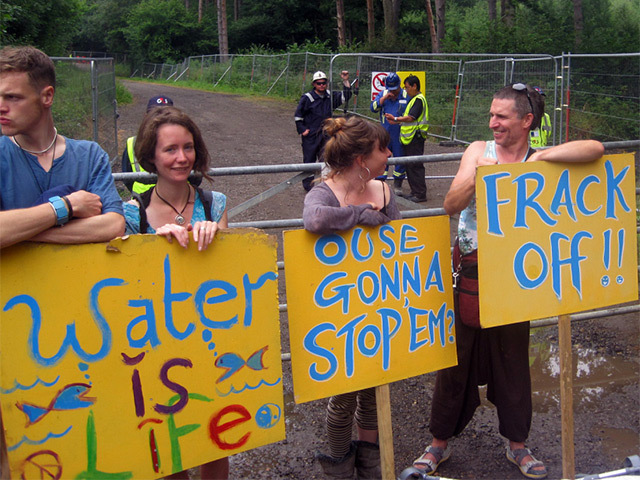
Shale gas extraction poses little risk to public health if it is run properly, a new report has claimed.
The study, by Public Heath England, reviewed scientific reports into the potential impact of chemicals and radioactive material from shale gas, including the controversial fracking process.
The report – described as an “initial review” – is based on research mostly from the US due to a lack of commercial projects taking place in the UK, with the authors admitting the findings would not necessarily easily translate to UK operations.
But its authors also said the process posed minimal risks to people from groundwater pollution or the release of radioactive radon gas, and said problems encountered in the US “appear to have been due to operational failures and inadequacies in the regulatory environment”.
Dr John Harrison, director of PHE’s centre for radiation, chemical and environmental hazards, said: “The currently available evidence indicates that the potential risks to public health from exposure to emissions associated with the shale gas extraction process are low if operations are properly run and regulated.
“Where potential risks have been identified in other countries, the reported problems are typically due to operational failure.
“Good on-site management and appropriate regulation of all aspects of exploratory drilling, gas capture as well as the use and storage of fracking fluid is essential to minimise the risks to the environment and health.
“PHE will work with regulators to ensure appropriate assessment of risk from all aspects of shale gas extraction.”
The review looked only at the immediate health impacts of fracking and not other issues, such as climate change and greenhouse gas emissions, water resources, or how noise, odours and fracking sites would affect local people.
He said of today’s report: “On the whole, the results are reassuring. We do not expect any adverse health effects.”
Today’s report called for the chemical make-up of fracking fluid to be made public.
In the US, over a four-year period, more than 2,500 fracking products were used by the industry, containing more than 750 chemicals and other components.
In the UK, fracking as part of shale exploration by energy company Cuadrilla near Blackpool was suspended in 2011 after it caused two small earth tremors.
Cuadrilla also faced anti-fracking protests at Balcombe, West Sussex, over the summer where it was carrying out exploratory drilling.
The report’s findings were welcomed by energy minister Michael Fallon.
“The UK has the most robust regulatory regime in the world for shale gas and companies will only be granted permission to frack for shale if their operations are safe.
“Public safety and health is paramount and Government will continue to work with industry to ensure the stringent safety guidelines are upheld as they explore the great potential for shale.”
But Greenpeace energy campaigner Leila Deen said the report also highlighted the potential dangers that fracking could cause.
“This report is a timely reminder of the risks inherent in fracking, and the potential long-term health impacts from industrial activity, traffic and the process of firing cocktails of chemicals into the ground in a densely populated country,” she said.
“The Government has so far responded to these risks by cutting the budget of the environmental regulator and effectively allowing companies to mark their own homework when it comes to monitoring.”
Potential shale resources have been identified across swathes of the country, particularly in northern England and the Midlands where a study from the British Geological Survey suggest there is as much as 1,300 trillion cubic feet in the Bowland shale, double what was previously estimated.
